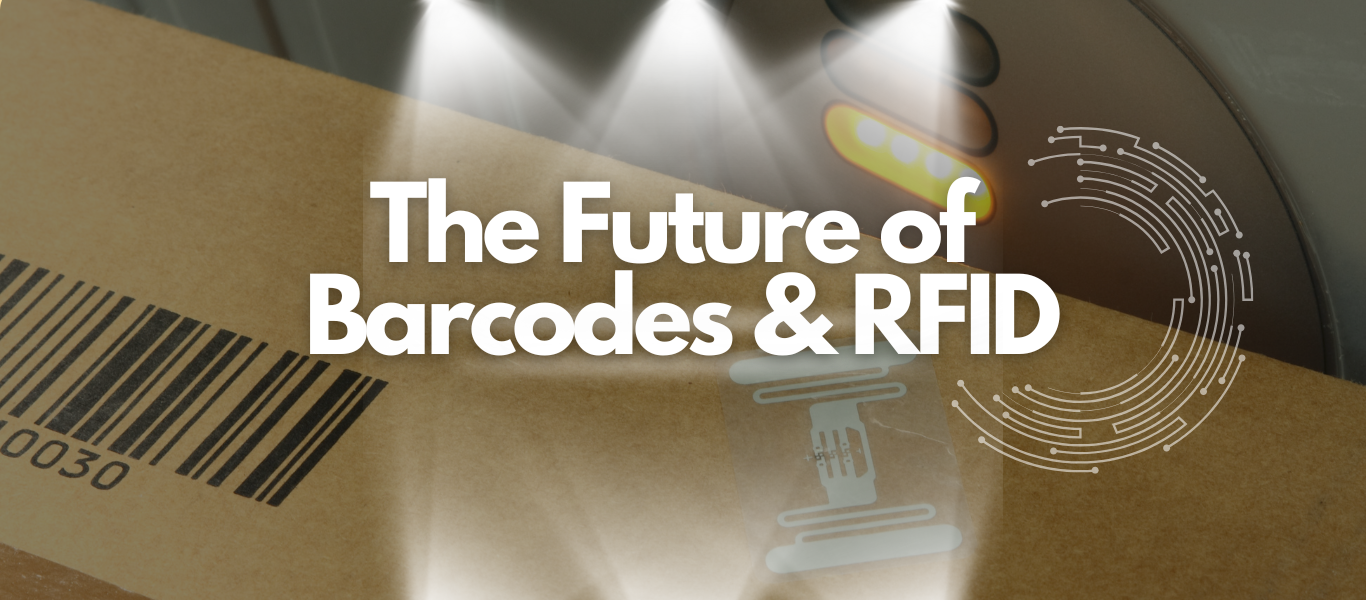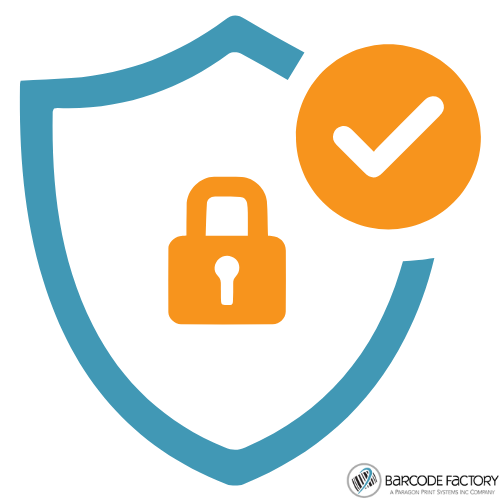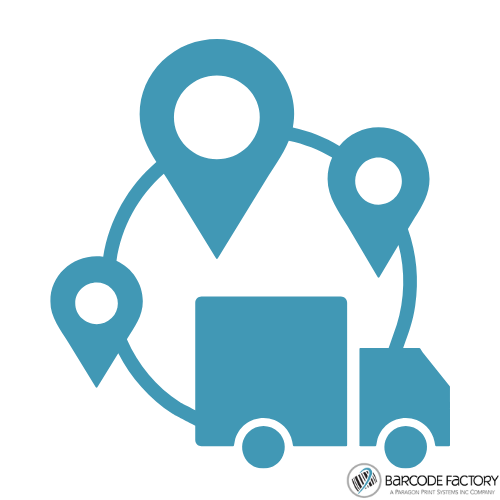5 Big Trends in Barcode and RFID Technology for 2025
2025 is coming up QUICK even though not all of us want it to…
…But with a new year comes new ideas, new technologies, and new obstacles and this goes for everything! Including your business as you well know. As industries get ready to adapt to the demands of 2025, businesses are using barcode and RFID technology to innovate operations, protect data, and support sustainability goals - to tackle these new obstacles and improve their business!
From logistics to healthcare, businesses are turning to these technologies to improve asset tracking, inventory accuracy, and patient safety.
In this quick guide we will break down five trends in barcode and RFID technology that you should be aware of, let’s dive into it!
Enhanced Security Measures
With barcode and RFID technology’s expanding role in sensitive industries, security advancements are crucial. Companies are now prioritizing secure data transmission through advanced encryption protocols and multifactor authentication to protect sensitive information.
Checklist for Secure RFID Solutions:
✅Implement secure, encrypted RFID tags
✅Choose systems with multifactor authentication capabilities
✅Ensure tags are tamper-evident or tamper-resistant where needed
Relevant Product:
Honeywell PX940 Industrial Printer: Known for its built-in verification, this printer ensures barcode quality and supports encrypted printing to secure sensitive data. Ideal for industries where security is critical, like pharmaceuticals and retail.
Real-World Example:
A pharmaceutical company used encrypted RFID tags to track high-value medications from the manufacturing stage to distribution. The tags not only reduced theft but also improved tracking accuracy, helping them meet regulatory requirements.
IoT Integration for Real-Time Tracking
Integrating IoT with barcode and RFID systems is transforming supply chain visibility, allowing real-time updates on inventory movement and status. IoT-enabled tags can automatically log data, eliminating manual updates and providing actionable insights instantly. In retail and warehousing, this integration reduces human error, minimizes stockouts, and improves overall efficiency.
Checklist for IoT Integration:
✅Select RFID/barcode tags compatible with IoT platforms
✅Set up automated alerts for stock movement
✅Invest in a dashboard for real-time data access and analysis
Relevant Product:
Zebra ZT411 RFID Industrial Printer: With its IoT compatibility and ease of integration, this printer streamlines the tagging and tracking process, ensuring that products are seamlessly connected to an IoT network.
Real-World Example:
A large e-commerce store used Zebra ZT411 RFID printers and IoT-enabled tags to track inventory across multiple warehouses in real-time. This led to faster processing, reduced stock discrepancies, and allowed accurate delivery estimates for customers.
AI and Machine Learning-Driven Insights
AI-driven insights are becoming indispensable, as AI can interpret and analyze the extensive data generated by barcode and RFID systems. This trend allows companies to predict demand, optimize inventory, and avoid overstocking. In industries like retail, AI analyzes seasonal trends and shopping patterns, helping managers make data-backed decisions to meet demand efficiently.
Checklist for AI Integration in Barcode/RFID:
✅Use AI-compatible hardware that can generate actionable data points
✅Ensure data from tags are structured for AI analysis
✅Invest in AI software that provides predictive analytics and actionable insights
Relevant Product:
Honeywell CK65 Mobile Computer: This mobile computer gathers data from RFID/barcode tags, feeding real-time data into machine learning systems that provide predictive insights. Perfect for retail or warehouse settings, it enables on-the-go data capture for analytics.
Real-World Example:
A retail chain equipped its stores with the Honeywell CK65 to track seasonal inventory trends. By analyzing this data, they were able to forecast high-demand products and optimize stock levels, reducing overstock costs by 20% over the year.
Sustainable and Eco-Friendly Tagging Solutions
Sustainability is no longer just a trend—it’s a necessity. Businesses are increasingly opting for biodegradable or recyclable barcode and RFID tags to reduce their environmental footprint. Eco-friendly tagging solutions not only align with sustainability goals but can also enhance brand reputation among eco-conscious consumers.
Checklist for Choosing Sustainable Tags:
✅Look for biodegradable or recyclable materials
✅Opt for products that meet environmental standards like FSC certification
✅Choose ink and adhesives that are non-toxic and eco-friendly
Relevant Product:
BarcodeFactory Eco-Friendly Labels: Made with biodegradable materials, these labels allow businesses to stay eco-friendly without sacrificing durability or performance.
Real-World Example:
A well-known retailer retailer swapped its standard tags for BarcodeFactory’s eco-friendly labels. Not only did this reduce waste, but it also attracted positive consumer feedback, aligning with the brand’s public commitment to sustainability.
Increasing Use in Healthcare and Pharmaceuticals
RFID and barcode solutions are growing in importance in the healthcare and pharmaceutical industries. These technologies are essential for tracking medical supplies, managing patient data securely, and ensuring compliance with regulatory standards. By leveraging automated solutions, healthcare facilities can reduce manual errors, ensuring that the right patient receives the correct medication and treatment.
Checklist for Healthcare RFID/Barcode Applications:
✅Ensure compatibility with patient data management systems
✅Use tags that are easily sterilizable or single-use, depending on the application
✅Implement secure, tamper-evident tags for sensitive information
Relevant Product:
Zebra DS4600 Healthcare Scanner: Designed specifically for the healthcare environment, this scanner is built to scan wristbands, medication vials, and IV bags, reducing errors and ensuring patient safety.
Real-World Example:
A hospital system implemented Zebra DS4600 scanners to track medication dosages and patient records. This upgrade significantly reduced medication errors and improved compliance with health regulations, helping staff focus more on patient care.
The Future is NOW
2025 brings exciting innovations in all industries, especially in barcode and RFID technology!
Staying ahead of these trends can give businesses (like yours) a competitive advantage and support long-term goals in security, efficiency, and sustainability.
In order to keep your business ahead of the curb fill out the quick form below and one of our experts will get in touch with you or contact us now by clicking here and one of our Barcode/RFID experts will work alongside you to ensure your operation is ready for 2025!







